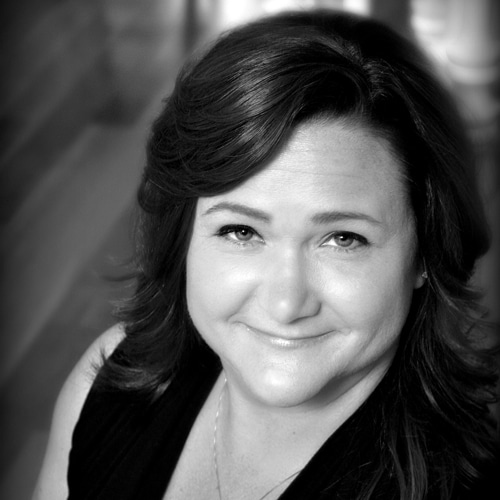In any given match, a WWE superstar can take down an opponent with a leap from the ropes or a well-timed athletic maneuver. Lauren Dienes-Middlen has a slightly different set of tools at her disposal. She uses a computer and pen to achieve the same results.

Dienes-Middlen serves as the vice president of legal and intellectual property for World Wrestling Entertainment (WWE). Every day she shuts down counterfeiters, bootleggers, and online pirates while managing a worldwide portfolio of more than 9,000 trademark applications and registrations, and an equal number of copyrights. “WWE is a very fast-paced, very driven company,” Dienes-Middlen says from her office in WWE’s famous Titan Tower in Stamford, Connecticut.
For the WWE, its performers are just the tip of the iceberg. Intellectual property, Dienes-Middlen says, is everything fans don’t see behind the ropes. “We are more than a wrestling company. We are a global entertainment company,” she explains. That includes weekly television shows, WWE Network—a two-year-old, subscription-based, direct-to-consumer network—more than 350 live events each year, and consumer licensed products ranging from action figures and clothing to perfume and video games.
Just as WWE superstars embrace the action-packed momentum, so too does Dienes-Middlen. “I may be asked to do a trademark search hours before something goes on the air,” she says. Being asked to clear new trademarks is not just a weekly occurrence but rather a year-round battle, since WWE doesn’t have an off-season like other professional sports. “I don’t think I’ve had downtime since I started here fifteen years ago, and I love it,” she says.
Dienes-Middlen says the pace and breadth of her responsibilities invigorates her as there’s no such thing as a typical day. One moment she can be clearing or filing for the trademark for a new tag-team name, and then in another moment she will be negotiating and drafting consumer product license agreements for any of WWE’s 300 licensees worldwide. After that, she may turn to reviewing submissions from licensees to make sure they follow WWE’s branding guidelines. “We can get about a hundred submissions a day,” she says.
Another important aspect of her job involves the enforcement of trademarks and copyrights. Working with her in-house intellectual property team, enforcement vendors, and local enforcement counsel, she helps shut down the sale of counterfeit WWE goods online, in brick-and-mortar stores, or at live events such as WrestleMania. “It’s always exciting for me,” Dienes-Middlen says of working those live events. “My job is to get a federal seizure order before the events, and work with law enforcement to seek out and seize bootleg merchandise being sold to unsuspecting fans.”
This is not just about protecting WWE’s income. It is about protecting consumers. “We want to get unsafe products off of the streets,” Dienes-Middlen says. Counterfeit T-shirts, for example, can be made from flammable materials or with ink that can cause allergic reactions. Most of these products are also stored in less than ideal conditions. “From a hygiene and safety perspective, it’s not something you want a child wearing,” she says.
Online piracy is also something WWE takes seriously. “We are very aggressive on that front. We work closely with our online brand protection vendors to engage in detecting, monitoring, and enforcing on sites that are illegally streaming live events in real time, posting the videos after they have aired, as well as sharing unauthorized peer-to-peer files,” she says. “With the ever-changing technology, you need to keep up.”
Through it all, Dienes-Middlen says her mantra is “work like it’s your first day on the job.” Although she learns from her experiences, she and everyone else at WWE is charged with thinking outside the box to come up with new solutions to any problems that arise, she explains. “Don’t just think that what you did yesterday is always going to be sufficient and is always going to be the solution for today or for tomorrow,” she says. “Try to think of new and better ways of handling things.”
Her team itself is a tight-knit group made up of herself, one other attorney, and two paralegals. That requires guidance not only as a leader, but as part of the group. “In addition to being a member of a fantastic and dedicated in-house legal department, I am a member of my own IP team,” Dienes-Middlen says. “I never expect my IP team to stay later than I do. I never delegate just for the sake of delegation. I am dedicated to getting the job done. I am available 24-7, and I’m going to help my team get what they need so that our business units can get what they need.”
She equates that leadership philosophy to the way WWE superstars operate. “You can’t have a match without having a partner,” Dienes-Middlen says. “If you’re flying off the ropes and you don’t have someone at the other end, it’s not going to be a very exciting or successful match.”
Yet it’s difficult to anticipate what WWE and her intellectual property work will encompass in the coming years, according to Dienes-Middlen. “If you had told me ten years ago that WWE would create its own network, I would not have believed you,” she says. She refers to WWE chairman and CEO Vince McMahon as “a true visionary,” and adds, “We as a company are always looking for the next great project. We’re never stagnant.”
Although Dienes-Middlen says many of the lawyers she talks with outside her company have grown to dislike their jobs and the legal field in general, she finds that is not the case for her. She loves both her profession and where she works. “It’s a fantastic place. It touches so many aspects of the law,” she says. “It’s really hard to predict what the next step will be. I just want to be along for the ride.”

